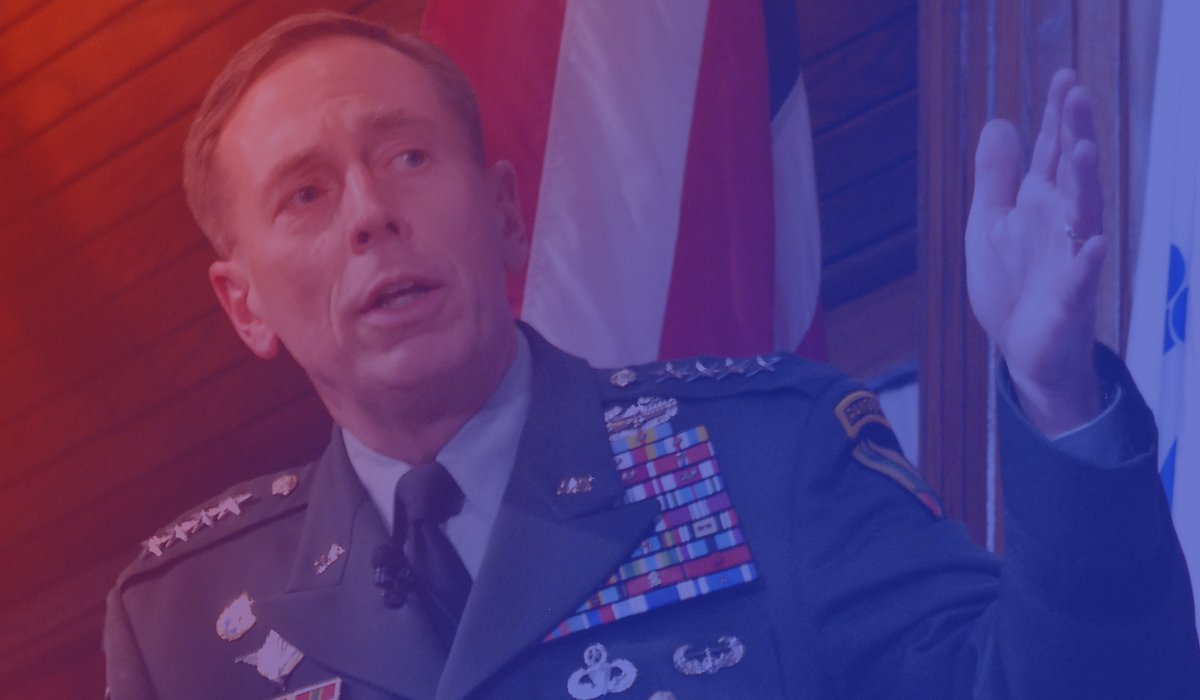As the Donald Trump transition team continues to interview candidates for the secretary of state position, one person he was “very impressed” by has made the media rounds just as critics cook up their arguments against his potential nomination.
Gen. David Petraeus, the former commanding general of Multi-National Forces in Iraq, hopes to bring his decades of experience back to Washington and serve the president-elect to be Americas top diplomat.
Addressing his critics on ABC television over the weekend, Petraeus noted, “What I would say to them is what I’ve acknowledged for a number of years, that five years ago I made a serious mistake. I acknowledged it. I apologized for it. I paid a very heavy price for it, and I’ve learned from it.”
Looking ahead, here are four facts about Gen. Petraeus to consider as Trump’s cabinet continues to take shape:
He was part of an elite group of West Point grads
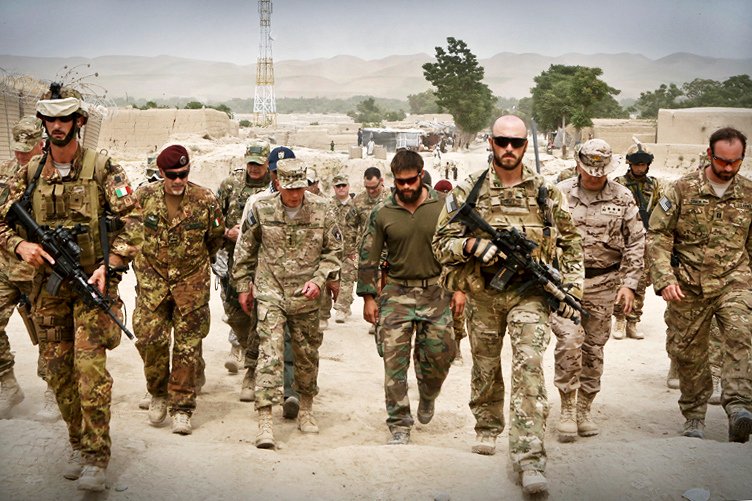
Four-star general David Petraeus leading young men in warfare during the Iraq and Afghanistan Wars (Wikimedia Commons)
West Point is famous for churning out famous war generals from Robert E. Lee and Jefferson Davis, to George S. Patton Jr. and Dwight D. Eisenhower. Petraeus joined that lineage in 1974, when he graduated with top honors as one of the school’s top-tier “Star Men.”
By the 1980s he had achieved the rank of captain, and while at Fort Leavenworth attended the Command and General Staff College where he became the school’s top graduate and earned an honor named after famed military commander George C. Marshall. By the early 2000s he had been deployed to the field as a brigadier general.
He fought alongside the best generals of a generation
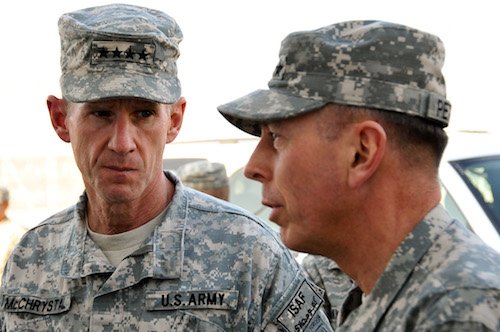
U.S. Army Gen. Stanley McChrystal, left, commander of U.S. Forces Afghanistan, and Gen. David Petraeus, commander of U.S. Central Command, talk at Bagram Air Base, Afghanistan, Oct. 29, 2009. (DoD photo)
Gen. James Mattis, who was recently named the Trump Administration’s top Pentagon official, joined Petraeus and fellow four-star generals Stanley McChrystal and John Allen to steer the U.S. through tough combat missions agains guerrilla terrorists in Afghanistan and Iraq.
Together they literally re-wrote the book on modern warfare, and turned the tides of America’s fortunes in an unpopular military campaign. The “surge” was a tactic laid out by Petraeus by himself, and is credited for helping the Americans drive out counterinsurgencies threatening to destabilize Iraq’s new democratic government. “Petraeus’s achievement in turning around a desperate situation in Iraq has few parallels in the annals of counterinsurgency,” writes military historian Max Boot.
He changed the culture of the CIA as its top director
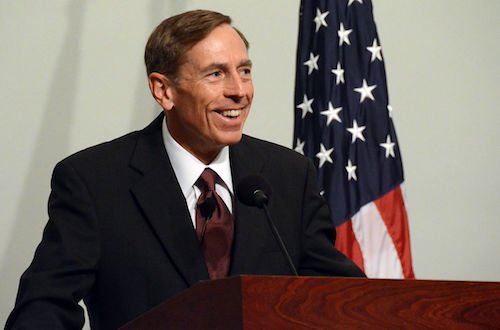
CIA Director David Petraeus (Wikimedia Commons)
Following his efforts in the field of battle, President Obama asked him to shift roles from the top commander of U.S. and NATO forces in Afghanistan to become the director of the Central Intelligence Agency. Following Leon Pancetta in the role, Petraeus reportedly ordered higher standards of work and often re-reviewed clandestine materials he deemed insufficient.
However, following the 2012 attack on the Benghazi consulate where CIA security detail had been murdered, his time as the nation’s top spy was winding to an abrupt end.
His Achilles Heel became a romance with a fellow military officer
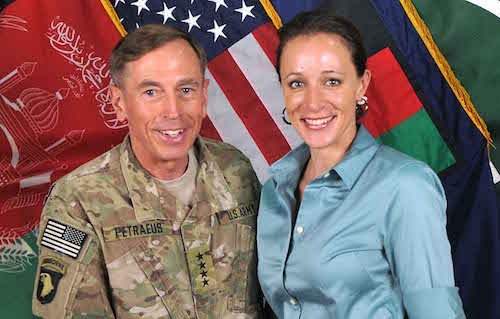
Gen. David Petraeus and DoD journalist Paula Broadwell (Wikimedia Commons)
After meeting Harvard graduate student and former military officer Paula Broadwell, Gen. Petraeus became undone professionally when it was revealed in 2012 that the two had had and extramarital affair.
Following an FBI investigation, it was revealed Petraeus and Broadwell had shared an email account where classified information was viewable. During the course of his biography (and the affair), Mrs. Broadwell became privy to “Top Secret” information resulting in not only the resignation of Director Petraeus, but a guilty plea in federal court.
